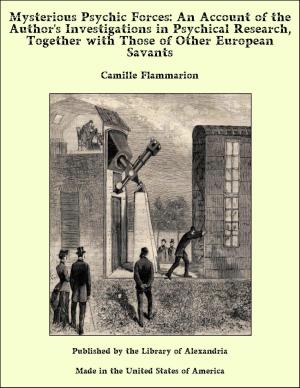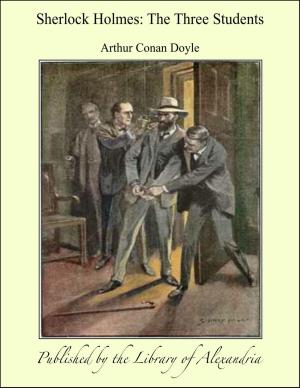The Life and Times of George Villiers, Duke of Buckingham: From Original and Authentic Sources (Complete)
Nonfiction, Religion & Spirituality, New Age, History, Fiction & Literature| Author: | Katherine Thomson | ISBN: | 9781465614728 |
| Publisher: | Library of Alexandria | Publication: | March 8, 2015 |
| Imprint: | Language: | English |
| Author: | Katherine Thomson |
| ISBN: | 9781465614728 |
| Publisher: | Library of Alexandria |
| Publication: | March 8, 2015 |
| Imprint: | |
| Language: | English |
The historians who attribute the calamities of the Great Rebellion to the misrule of James the First, under the pernicious influence of his favourites, draw a lively parallel between the condition of England at the accession of that monarch and the state of peril and embarrassment with which his great predecessor had to contend. Elizabeth, whose inauguration, long celebrated, after her death, as a day of jubilee, was regarded as the commencement of national prosperity, came to the throne under very adverse circumstances. The functions of Government were clogged with debt. The miserable state of the navy required a constant vigilance to repel the chance of invasion, and to drive away pirates by whom the narrow seas were infested. The revenues of the Crown were insufficient to maintain its power and dignity; the country, moreover, was embroiled in religious dissensions; whilst the authority of the Queen was lessened by a disputed succession, and her mind harassed and embittered by the pretensions of the Dauphin of France to the Crown of England, in right of his wife, Mary Stuart. James, on the contrary, began his reign with every exterior advantage. His claim to the sovereignty was undoubted; and various causes had concurred to give great influence to the Crown. The subservient tributes of respect paid to its dignity were such as even to astonish the envoys of despotic France. Elizabeth had been served and addressed by her subjects on the knee; James, at all events for a time, continued that abject custom, which was a type of the prevailing national sentiment towards royalty. Commerce, in spite of monopolies, and of the injudicious interference of the Legislature with wages, was advancing; leases granted of large tracts of land had increased the opulence of the country; the improved prospects of the landholders acted on the prosperity of the manufacturing classes: whilst the general welfare was increased by emigration; the religious persecutions on the Continent, driving from foreign towns ingenious workmen, sent them into England, where they introduced arts hitherto unknown in this country. The Constitution, too, had been maintained; and, with the exception of the court of the Star Chamber, over which James presided in person, the principles of liberty had not been materially invaded. There was no standing army; the tenets of Protestantism were established; and the Presbyterian education of the King afforded a hope that certain traces of the faith which had been renounced would die away, and that ceremonials which were objectionable to many would be speedily discontinued. Thus, the first of the Stuart Kings enjoyed blessings not possessed by any of his predecessors; and, ascending the throne, opened a new era in the history of the country.
The historians who attribute the calamities of the Great Rebellion to the misrule of James the First, under the pernicious influence of his favourites, draw a lively parallel between the condition of England at the accession of that monarch and the state of peril and embarrassment with which his great predecessor had to contend. Elizabeth, whose inauguration, long celebrated, after her death, as a day of jubilee, was regarded as the commencement of national prosperity, came to the throne under very adverse circumstances. The functions of Government were clogged with debt. The miserable state of the navy required a constant vigilance to repel the chance of invasion, and to drive away pirates by whom the narrow seas were infested. The revenues of the Crown were insufficient to maintain its power and dignity; the country, moreover, was embroiled in religious dissensions; whilst the authority of the Queen was lessened by a disputed succession, and her mind harassed and embittered by the pretensions of the Dauphin of France to the Crown of England, in right of his wife, Mary Stuart. James, on the contrary, began his reign with every exterior advantage. His claim to the sovereignty was undoubted; and various causes had concurred to give great influence to the Crown. The subservient tributes of respect paid to its dignity were such as even to astonish the envoys of despotic France. Elizabeth had been served and addressed by her subjects on the knee; James, at all events for a time, continued that abject custom, which was a type of the prevailing national sentiment towards royalty. Commerce, in spite of monopolies, and of the injudicious interference of the Legislature with wages, was advancing; leases granted of large tracts of land had increased the opulence of the country; the improved prospects of the landholders acted on the prosperity of the manufacturing classes: whilst the general welfare was increased by emigration; the religious persecutions on the Continent, driving from foreign towns ingenious workmen, sent them into England, where they introduced arts hitherto unknown in this country. The Constitution, too, had been maintained; and, with the exception of the court of the Star Chamber, over which James presided in person, the principles of liberty had not been materially invaded. There was no standing army; the tenets of Protestantism were established; and the Presbyterian education of the King afforded a hope that certain traces of the faith which had been renounced would die away, and that ceremonials which were objectionable to many would be speedily discontinued. Thus, the first of the Stuart Kings enjoyed blessings not possessed by any of his predecessors; and, ascending the throne, opened a new era in the history of the country.















